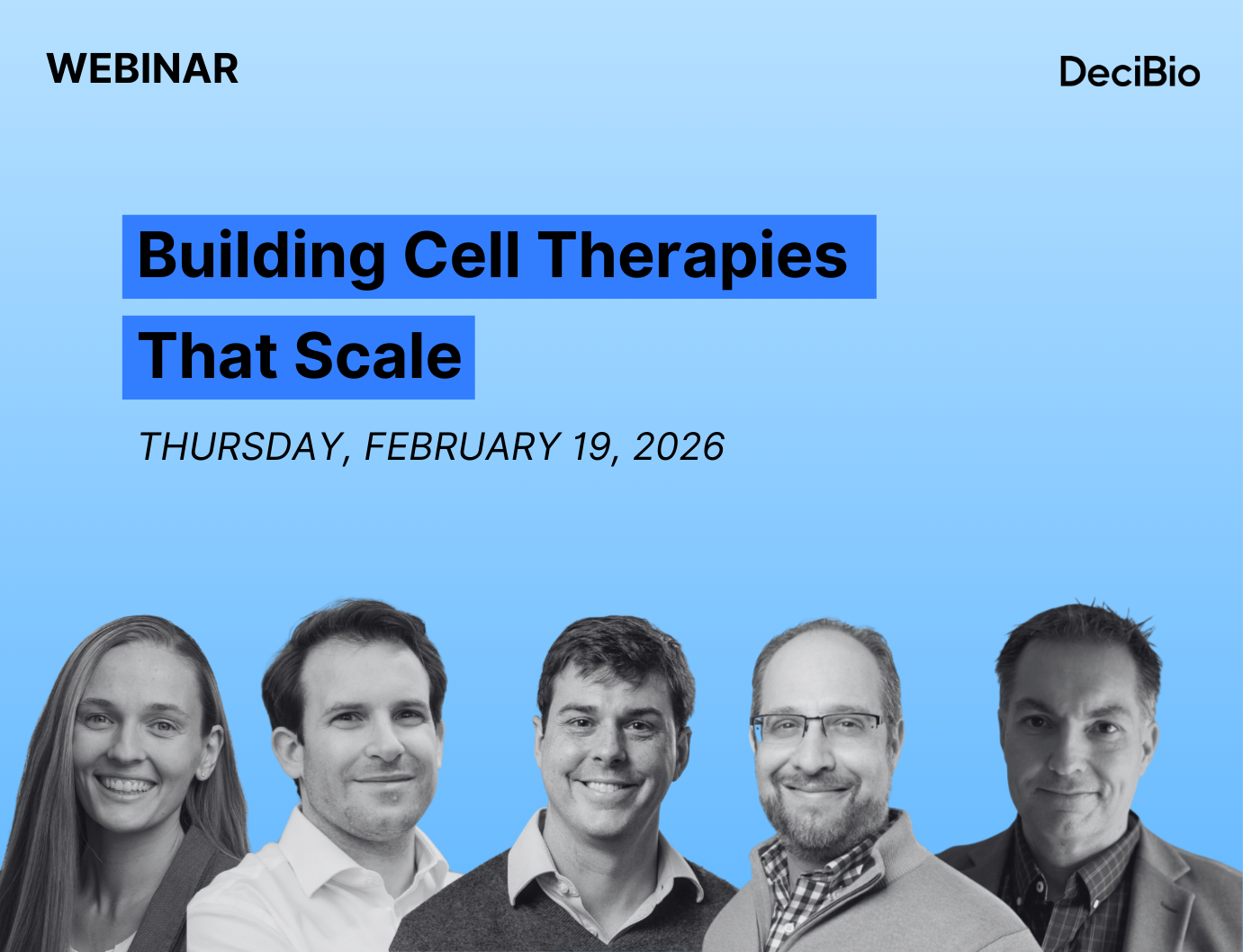Los Angeles, CA November 26, 2019 – At DeciBio, we believe that the precision medicine revolution will be driven by improvements in life science research tools and diagnostics technologies! A couple of weeks ago, I had the privilege to be a panelist at the UBS EMEA 2019 conference in London, with James Hadfield and Doris-Ann Williams. I made the following points, which generated an interesting discussion following the conference (the slides can be found here for those who want to follow along): https://bit.ly/2On9BRRSlide 2: Today, cancer has a major societal impact, with 18M new cases and 10M deaths in 2018; this will change in a decade
- Late-stage diagnosis is associated with poor survival rates and high cost of care
- While the number of new cases may steadily increase over the next decade, the number of deaths may stabilize, as we catch many cancers earlier when they are more treatable
Slide 3: Liquid biopsies and immuno-oncology drugs (including checkpoint inhibitors and CAR-T) are the two recent developments that can move the needle for cancer patients
- Diagnostics is arguably (and in our opinion) a more powerful tool, as cancer survival is closely tied to stage at diagnosis
- Even the best (immuno-)therapies have limitations when treating advanced disease, and only improve lifespan in a subset of patients from months to a couple of years
Slide 4: Liquid biopsy is a "companion" (not a CDx) through the entire cancer journey; it has many advantages over other procedures that are currently the standard of care, such as imaging and IHC from tissue biopsies
- It enables physicians to follow patients longitudinally, which is important as cancer is a dynamic disease
Slide 5: Therefore, liquid biopsies, and most notably early detection, have the opportunity to change the cancer care paradigm, and potentially shift the demographics in developed countries, as we detect cancer earlier, when survival is much higher
- Early detection isn't a pipe dream, but 5 years away
- Cancer can be cured or become a chronic disease - this has applications across industry verticals beyond healthcare, as this aging population of survivors may have specific consumption needs
- Liquid biopsy will help with the transition to proactive (vs. reactive) care
Slide 6: As a result, it's an exciting space that has attracted hundreds of companies that have received billions in combined VC investments in the last 5 years
- The space is becoming crowded, with many companies targeting specific applications; there will likely be a massive shake-out and consolidation in the next 5 years
- This has implications for multiple stakeholders, including pharma, reg, payors, and more
Slide 7: Liquid biopsies for cancer are just the beginning; there is a lot of information we'll be getting from blood draws in the future
- Adaptive Biotech is developing a platform to understand the complex signatures of the immune system, which has trillions of different receptors
- In the future, when we'll be able to read and understand these immune signatures, one blood draw should be able to give us all of the information we need on a patient's current state of health and disease, from infection to cancer, autoimmune diseases, and beyond
Slide 8: This transformation of the diagnostic landscape will impact multiple stakeholders, from pharma companies to payors and patientsNow, diagnostic companies “just” have to price accordingly and move away from the current cost-based / fee-for-service model.Feel free to contact us if you’d like to chat about this topic! #NGSisUnstoppable
STEPHANE BUDEL

Author: Stephane Budel, Partner at DeciBio Consulting, LLCConnect with Stephane Budel on LinkedinDisclaimer: Companies listed above may be DeciBio clients and/or customers


%20(1).png)





